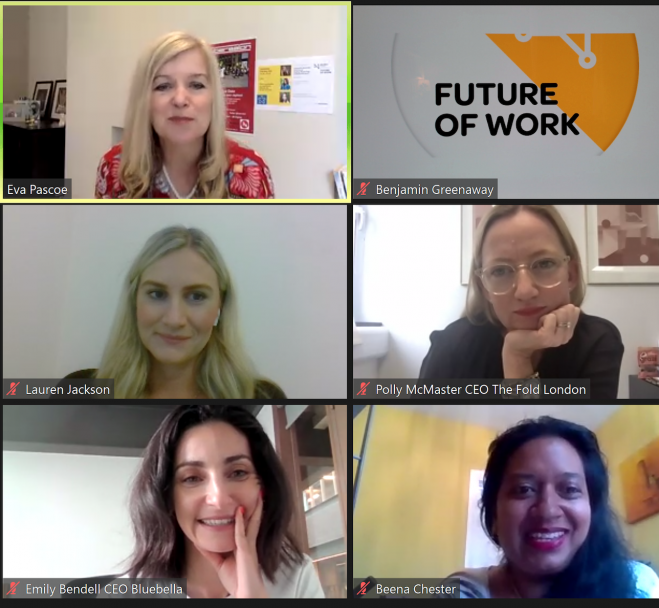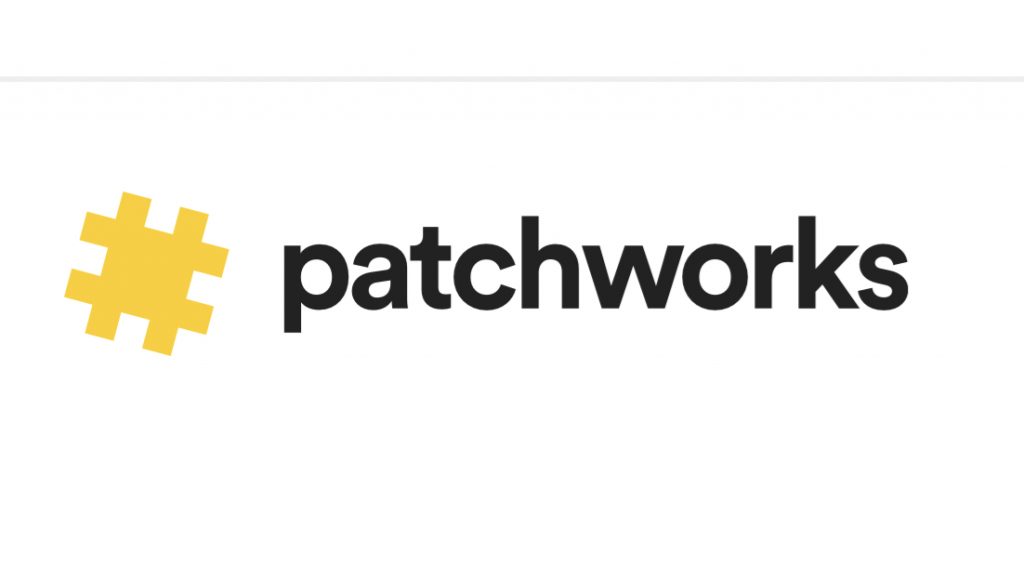
by Wael Elazab
Fashioning the work-week, a balancing act is next on the runway.
Warming the corridors with the friction of their palms rubbing together, howls echo across oceans and the cackling reverberates through your living room.
Readying seats for the embrace of your hind quarters, senior management await your return.
But, … The environment! Our health and wellbeing! And, ahem, the productivity!
Donning clothes last worn spring 2020, while installing, updating and checking transit, mapping and navigation apps, and accepting that the procrastination must end, for the inevitable is here.
The Great Return.
Genuinely inevitable in the return to work, will be change.
Eye opening and bandwidth-demanding, the pandemic has been an education, and continues to teach lessons.
So, a yes it is.
Only 13% of the attendees are planning to go back for the full week.

Yes, to The Great Return, one encompassing conscientious sustainability, mental health awareness and enhanced work-life balance. Each of these will be a defining characteristic of the new landscape.
To look at this landscape, Tech London Advocates Future Of Work group, put together a panel of people in the know.
Bringing together London-based tech advocates and pointing them at post-pandemic UK, the Ecom Hour of Power asked them, for a walkthrough of the return to work; describe what a successful transition will look like, and how it’s to be managed.
The presence and punch, the embellishment-free yet rich and poignant delivery of this ensemble, was a magnetic display of leadership and vision. Each an influencer, each proclaiming a fabulously fitting future, with a seamless, well-wearing and practical frame-form.
Digital strategist, Eva Pascoe, expects, “Fifty shades of hybrid,” conceptualising the many unique, and tweaked variations that employers might adopt, and adapt as needed.
Emphasising the challenge this brings, panellist Beena Chester, director Resilience First, said every sector is, “learning as they go,” and for companies to succeed, Beena continued, it’s about, “Getting the trust and the buy-in of your employees [which gives them] the will and the motivation to carry on alongside you.”
Emily Bendell, CEO Bluebella, agreed a hybrid approach was inevitable, but also that it should be tempered, “Yes, … the time wasting, polluting [commute] we do may not be necessary, equally it’s highlighted how important personal connection is … we do need physical contact with others.”
Each of the panel brought their experience to the session, and though they’re all coming at it from a fashion perspective, they each have a novel take on lockdown, and the pandemic.
“When you’re selling work-wear, you need people to be going to work,” Polly McMaster, CEO The Form, exclaimed, “We had to pivot quickly … rebalancing our whole collection.” Also important for Polly to balance for sustainability, is the ethical and the environmental elements. Forming a partnership with World Wide Generation to achieve this, “Looking at all the aspects of the sustainability development goals … female empowerment and gender equality, ethical supply chains and environmental impact.”
Lauren Jackson, Live Unlimited, produces clothing for longevity, she explains, “Sustainability is considered for every stage, from the sourcing of the fabrics, to when the customer receives the order. Our first fully sustainable collection was launched in April this year.”
Emily raised some of her sustainability challenges, “It’s a work in progress, we’re introducing eco-fabrics where we can, with lingerie it’s tough.” She continued with green-washing, an issue to be weary of, “You have to question, packaging for example, the reality of [the recyclable poly-bag] is it’s only recyclable in very few places … unless you are going to a specialist recycling centre, it’s not going to happen. So, we look to de-bag at the warehouse, and we will recycle them.”
Thinking out loud, of the bigger picture of why she works, and what gets her up every day, Polly said, “It’s my team, and that’s not necessarily people I’m in a meeting with, it’s the little hellos at the front desk, conversation that make up the feeling of togetherness.” She continues, “I didn’t work for the last eight or nine years, to stare at a screen, on my own, for eight hours.” Lack of in person meetings was noted as the most challenging from the bosses’ point of view.

It’s impossible to measure, explained Emily, “We can do all the same things [remotely], the technology is there. It’s very hard to quantify the osmosis; overhearing something, understanding how that person works, asking that extra personal question because you’re waiting for the kettle together – very difficult to quantify the value of, but something valuable is being taken away.”
“There’s no doubt we’re social animals, and working from home has shown us pros and cons,” said Beena, who continued, “People have felt siloed and left out, while others have trepidations of coming back to work and prefer working from home. Let’s take what we’ve learnt from the pandemic as opportunities.”
We are social animals, but the poll indicated that once a week is probably maximum frequency of the team needing to meet in person, with plenty of attendees noting they are happy with remote tools.

It’s fair to expect remote work will continue, just look at our office homes.
Children, pets or partners successfully coaxed, bribed or otherwise silenced, a bamboo water bottle and a fibre-fed i7 with hella-res monitor.
BLAMMO. You’re there, working, living and thriving remotely. At the frontier, and celebrating this pioneering, lockdown adventure.
However, we are not the first. Not the first to coordinate, co-work and co-operate remotely.
Before the pandemic, there was the oil crisis.
No one could get to work, 1973, and no petrol. The remedy, as Wikipedia calls it, “The telephonic transmission of scanned printed material.” The facsimile machine came to the rescue. Assignments delivered by fax to libraries, cafes and homes.
It’s no longer a wonder that people still fax.

Sponsors

